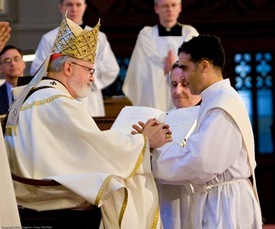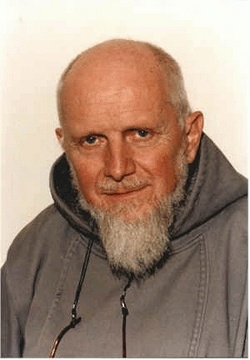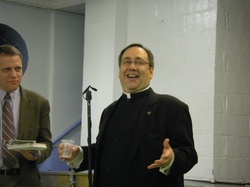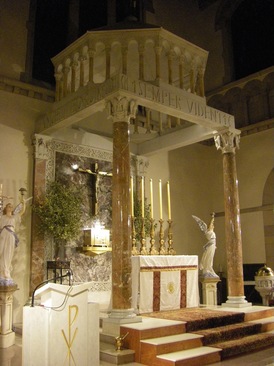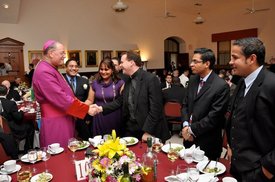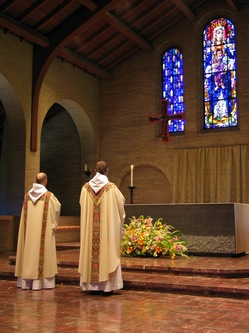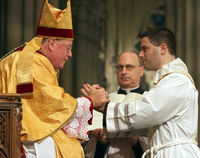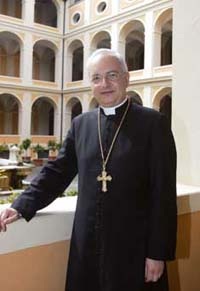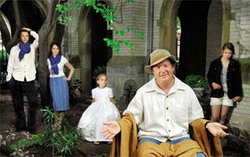Obedience is part of everyone’s human experience. Right now I can’t think of anyone on the planet who is not called/bound to some type of obedience. Can you? In the Catholic priesthood the man being ordained a priest makes a promise of respect and obedience to the bishop (if the man is going to be a diocesan priest), for life. How counter-cultural that is! In a regular letter to those interested, the secretary at the Congregation for Clergy has been writing periodic letters exploring various themes in the priesthood because we are in the “Year for Priests.” Today’s reflection is on priestly obedience.
obedience, ordinands profess a “promise” of “filial respect and obedience” to
their own Ordinary and his Successors. If the theological standing of a Vow and
a promise is different, the total and definitive moral obligation is identical,
and likewise identical is the offering of one’s will to the will of Another: to
the Divine will, mediated through the Church.
it is by relativism and democraticism, by various forms of autonomous
individualism and libertinism, such a promise of obedience appears ever more
incomprehensible to the prevailing mindset. It is not rare for it to be
conceived as a diminution of dignity and human freedom, as a perseverance in obsolete
forms, typical of a society incapable of authentic emancipation.
authentic obedience know well that this is not the case. Obedience in the
Church is never contrary to the dignity and respect of the person, nor must it
ever be understood as an abandonment of responsibility or as a surrender. The
Rite utilizes a fundamental adjective for the right understanding of such a
promise; it defines obedience only after mentioning “respect”, and this with
the adjective “filial”. Now the term “son”, in every language, is a relative
name, which implies, specifically, the relationship of a father and a son. It
is in this context that the obedience we have promised must be understood. It
is a context in which the father is called to truly be a father, and the son to
recognize his own sonship and the beauty of the fatherhood that has been given
to him. As happens in the law of nature, no one chooses his own father, nor
does one choose one’s own sons. Therefore, we are all called, fathers and sons,
to have a supernatural regard for one another, one of great reciprocal clemency
and respect, that is to say the capacity to look at the other keeping always in
mind the good Teacher who has brought him into being, and who always,
ultimately, moulds him. Respect
is, by definition, simply this: to look at someone while keeping Another in
mind!
is possible, one which is not only formal, a mere execution of orders, but one
which is ardent, complete, attentive, which can really bring forth the fruits
of conversion and of “new life” in him who lives it.
Ordinary at the time of ordination and to his “Successors”, since the Church
always draws back from an excessive personalism: She has at heart the person,
but not the subjectivism that detracts from the power and the beauty, both
historical and theological, which characterize the Institution of obedience.
The Spirit resides also in the Institution, since it is of divine origin. The
Institution is charismatic, of its very nature, and thus to be freely bound by
it in time (the Successors) means to “remain in the truth”, to persevere in
Him, present and operative in his living body, the Church, in the beauty of the
continuity of time, of ages, which joins us enduringly to Christ and to his
Apostles.
